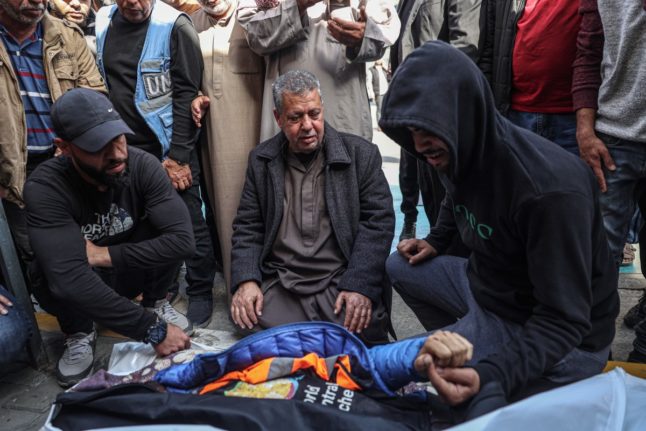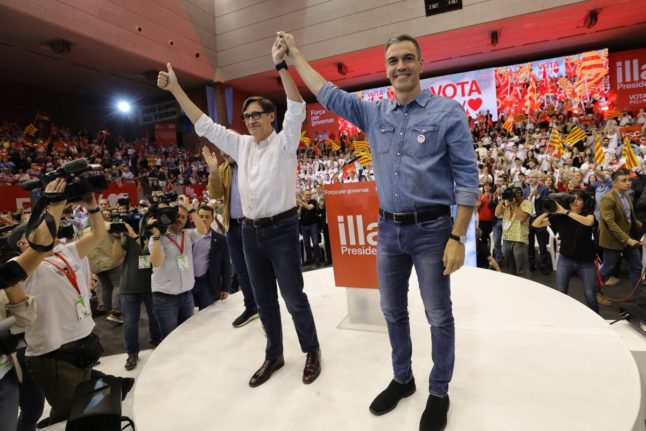“We are waiting for a much more detailed clarification of what the causes have been, bearing in mind that the Israeli government knew about the actions and the itinerary of this NGO on the ground in Gaza,” Sánchez told a Doha news conference at the end of a three-nation tour of the Middle East.
“It seems to me absolutely unacceptable, insufficient,” he added when asked about Netanyahu’s statements about the tragedy.
US-based food aid organisation World Central Kitchen – founded by Spanish-American celebrity chef José Andrés — said it was pausing its operations in Gaza after the “targeted Israeli strike” on Monday killed Australian, British, Palestinian, Polish and US-Canadian staff.
READ MORE:
- Spain’s PM demands Israel explain ‘brutal’ Gaza strike on aid workers
- José Andrés: Who is the Spanish celebrity chef feeding people in need?
Netanyahu later admitted Israel’s military had “unintentionally” killed them in an air strike.
He said it was a “tragic case” that would be investigated “right to the end” but stopped short of apologising for the deaths.
The Israeli army said Tuesday it would hold an investigation into the air strike and pledged to “share our findings transparently”.
Sánchez has been one of the most critical voices in Europe over the way Israel has conducted its military campaign in Gaza in response to Hamas’s October 7th attacks.
He has repeatedly said the only solution to the Israeli-Palestinian conflict is the recognition of two states, Israel and Palestine.
Sánchez said Wednesday that Spain would recognise Palestinian statehood “as soon as possible, when the conditions are right and in such a way that this decision will have the most positive impact possible”.
While he did not give a timeline, Spanish media reported Tuesday that he told journalists accompanying him on his Middle East trip that he wants to take this step during the first half of this year.
At the same time, Sánchez called for “the recognition of Israel by its Arab neighbours”, saying “mutual recognition is the key to achieving a lasting solution to this conflict”.
Sánchez began his Middle East tour in Jordan on Monday, before travelling to Saudi Arabia then Qatar.
Both Saudi Arabia and Qatar do not have official ties with Israel.



 Please whitelist us to continue reading.
Please whitelist us to continue reading.
Member comments